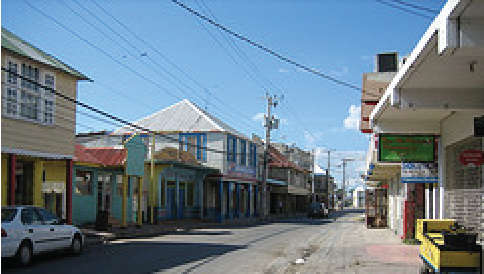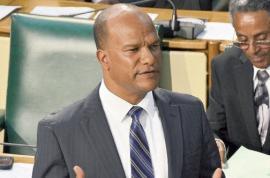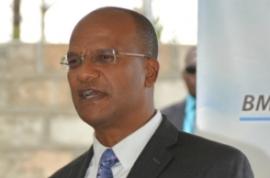-
-

-

-

Newsletter: Transforming Central Manchester into a Centre of Excellence
Tuesday September 15, 2015
 Transforming Central Manchester into a Centre of Excellence.pdf
Transforming Central Manchester into a Centre of Excellence.pdfMP’s Newsletter: September 2014
Friday October 24, 2014Constituency Report: June 2014
Friday, September 26, 2014
 2014_June_Constituency Report.pdf
2014_June_Constituency Report.pdfConstituency Report: June 2014
Wednesday, September 24, 2014
 2014_June_Constituency Report.pdf
2014_June_Constituency Report.pdfMP’s Constituency Report: January 2014
Tuesday, April 29, 2014
 MP_Report_CentManch_Jan2014 Final.pdf
MP_Report_CentManch_Jan2014 Final.pdfMP’s Constituency Report: September 2013
Monday, September 30, 2013
 MP_Report_Sept_2013.pdf
MP_Report_Sept_2013.pdfMP’s Constituency Report #15: April 2013
Friday, May 17, 2013
 MP_Report_No15_Apr2013.pdf
MP_Report_No15_Apr2013.pdfMP’s Constituency Report #14: December 2012
Thursday, December 27, 2012
 MP_Report(PrintReady)_2012_DEC.pdf
MP_Report(PrintReady)_2012_DEC.pdfMP’s Constituency Report #13: September 2012
Wednesday, September 26, 2012
 MP’s_13th_Report_to_Constituents 2012_Sept_Central_Manchester_Web.pdf
MP’s_13th_Report_to_Constituents 2012_Sept_Central_Manchester_Web.pdfMP’s Report to Constituents: December 2011
Friday, December 23, 2011Bunting’s 1st Term Achievements
Sunday, December 4, 2011MP’s Report to Constituents: August 2011
Wednesday, August 31, 2011
 MP’s Report Aug 2011.pdf
MP’s Report Aug 2011.pdfMP’s Report to Constituents #8: December 2010
Tuesday, January 18, 2011
 Bunting_DEC_2010_Jan2011 _MP_report_to_Constituents_8_lite.pdf
Bunting_DEC_2010_Jan2011 _MP_report_to_Constituents_8_lite.pdfMP’s Report to Constituents #7: March 2010
Thursday, April 1, 2010
 PB_Flyer_7th_Report_Mar2010_lite.pdf
PB_Flyer_7th_Report_Mar2010_lite.pdfMP’s Report to Constituents #6: August 2009
Monday, August 3, 2009
 MP_Flyer Report_Aug2009_web.pdf
MP_Flyer Report_Aug2009_web.pdfCentral Manchester 5-year Development Plan
Tuesday, April 28, 2009
 5_Year_Comm_Dev_Plan- Cent Manchester_lite.pdf
5_Year_Comm_Dev_Plan- Cent Manchester_lite.pdfMP’s 5th Quarterly Report to Constituents (Sep-Dec 2008)
Sunday, February 8, 2009MP’s 4th Quarterly Report To Constituents (JULY-SEPT 2008)
Monday, October 27, 2008
 MP_Report_WEB_July_Sept08.pdf
MP_Report_WEB_July_Sept08.pdfMP’s 3rd Quarterly Report
Wednesday, June 18, 2008
 PBunting MPReport June 2008 qtr.pdf
PBunting MPReport June 2008 qtr.pdfMP’s 2nd Quarterly Report
Wednesday, April 16, 2008
 MP’s_Report_16April08-FLYER.pdf
MP’s_Report_16April08-FLYER.pdfMP’s 1st Report to Constituents: Jan 2008
Thursday, January 10, 2008 -

-


Prison deal will only be signed after public education, says Bunting
Jamaica Observer
October 06, 2015
KINGSTON, Jamaica (JIS) – Minister of National Security Peter Buntings says the Government will only sign the Prisoner Transfer Agreement with the United Kingdom (UK), after adequate public education and debate, and the enactment of new legislation in the Jamaican Parliament.
“In fact, we will start this process with the establishment of a Special Select Committee that will receive written and oral submissions on this issue by technical experts and all interested parties, including civil society and the Diaspora,” he said.
In a statement to the House of Representatives today, the minister further noted that House Leader, Phillip Paulwell, will shortly bring a Resolution to establish the Special Select Committee.
The Ministry of National Security engaged the UK Government in negotiations for over a year to secure a grant of £25 million towards the construction of a modern maximum security facility, contingent upon the signing of a Prisoner Transfer Agreement that was proposed by the UK Government.
Only Jamaican citizens who would have been subject to deportation at the end of their sentences will be eligible for transfer to Jamaica. United Kingdom citizens in Jamaican prisons will also be eligible for transfer to the UK.
“There are hundreds of Jamaicans deported every year to Jamaica, having served prison sentences for drug-related or violent offences in the United States of America or the UK, without the benefit of a structured reintegration process. Accelerating the return of a small percentage of these Jamaicans through a structured rehabilitation and reintegration process is a reasonable trade-off for a dramatic improvement in our prison conditions,” Bunting said.
He further noted that the Prisoner Transfer Agreement calls for no more than 300 spaces to be reserved in this new prison for Jamaican citizens serving sentences in the UK, and who are subject to deportation at the end of their sentences.
“In reality, the numbers are likely to be much less. The UK/Nigeria prisoner transfer agreement, which is in its second year, has only transferred one prisoner so far with another 16 in process. Nigeria has a higher number of prisoners in UK prisons than Jamaica,” the minister noted.
The proposed purpose-built maximum-security prison would accommodate between 1,500 and 2,000 inmates, and would effectively resolve the problems of overcrowding and undesirable conditions, which now obtain at the Tower Street and St Catherine Adult Correctional facilities.
In addition, Bunting said the Government was also successful in negotiating an additional £5.5 million towards the reintegration and resettlement of prisoners under the Prisoner Transfer Agreement.
“The cost of rehabilitation and reintegration of prisoners returned under the Prisoner Transfer Agreement will not be a burden on the public purse. Under no circumstances would the Prisoner Transfer Agreement be a net cost to Jamaican taxpayers. This can be achieved by limiting the period for which the Prisoner Transfer Agreement would be in effect,” he stated.
Meanwhile, Bunting informed that an administrative and judicial review process would be in place to determine whether or not to accept each prisoner transfer request.
He noted that the experience of other countries that have signed the Prisoner Transfer Agreement shows that each case is subject to legal and administrative processes.
Conditions that may be included in a Prisoner Transfer Agreement are that: the sentenced person is a national of the receiving State; the sentenced person consents to the transfer or is subject to an order for expulsion, deportation or removal from the transferring State; no other legal proceedings relating to the offence or any other offence committed by the sentenced person are pending in the transferring State; the sentence relates to acts which also constitute an offence under the law of the receiving State; and the transferring and receiving States both agree to the transfer.
“A net financial burden would not be transferred to the receiving country. The Government of Jamaica will have to finalize the cost of the new prison and seek to identify the remaining funds to build the new prison,” Bunting said.
He noted that the new facility would be designed and constructed with a focus on rehabilitation, which should reduce the current high rates of recidivism.
The minister further added that downtown Kingston would have the opportunity for the redevelopment of 30 acres of prime waterfront land, while noting that a similar opportunity for redevelopment would be possible in Spanish Town.
-


Unite for Change boosts effort to fight crime
Jamaica Observer
September 20, 2015
ST JAMES, Jamaica (JIS) – Minister of National Security, Peter Bunting, has been revving up the Unite for Change campaign, particularly in the rural parishes, in which he has been calling for a more united effort in the fight against crime.
He emphasised that the approach has to be frontal and steadfast, where the criminals will realise that there is no safe haven from which to operate.
At a recent handing over ceremony for the Ocho Rios closed circuit television surveillance system, Bunting noted that even with the most effective of strategies, the security forces cannot work in isolation.
“It will take a united effort from the citizens of this country…from communities across the island, to help in the fight against crime,” he explained.
“This will take a whole society approach. We welcome the support from the community leaders, from the families, from the church. This is something we must all tackle together as a nation. This is what Unite for Change is all about,” the minister said.
Taking the message into the western parishes over the past months, particularly St James, Trelawny, Hanover and Westmoreland, Bunting has been telling community leaders that they have to take the fight to the criminals, listing the lottery scam as the leading ill facing the region.
Launched on December 5, 2013, by the Ministry of National Security, the Unite for Change Initiative is a national movement and public awareness campaign, aimed at “empowering each citizen to take back Jamaica from the clutches of criminal elements.”
According to Bunting, it is also designed to “rekindle hope among Jamaicans and convince law-abiding citizens that they are not helpless, but can overcome the fear that has immobilised them, by working together as a united front against crime.”
-


Security Minister Says Jamaicans Must Reject Criminality
By: Sharon Earle | Jamaica Information Service
August 19, 2015
Minister of National Security, Hon. Peter Bunting, says Jamaicans must reject scamming, criminality, extortion, and gang violence at the familial and community levels, or the efforts of the police will come to nought.
The Minister was speaking at a rally following the 10,000 Men and Their Families March for Peace at Dump-up Beach, in Montego Bay, on Sunday (August 16).
Mr. Bunting said he is optimistic that the march signalled a higher level of public involvement in the fight aganist crime.
“I am hopeful because the thousands of persons out here today can make a greater difference than another 200 police or another 500 police. The leadership provided by the Ministers’ Fraternal in St. James is a start and it is going to continue tomorrow, the next day, the next week, the next month, next year until we win the battle against crime and violence in St James,” the Minister said.
He renewed his pledge to take back St. James from the hands of criminal elements; however, he is citing the role of families and communities in the fight.
“If you say Jesus, say Jesus or if you say scammer, then you say scammer, because the Bible teaches us – ‘You cant serve two masters. You cannot serve God and mammon, and mammon is what you (are) getting from the scamming. If you sow the wind, you will reap the whirlwind,” Mr. Bunting warned.
The Montego Bay march was organised by the St. James Ministers Fraternal, in collaboration with the Citizen Security and Justice Programme (CSJP), National Integrity Action (NIA), Child Development Agency (CDA), Office of the Children’s Advocate, Jamaica Constabulary Force, Social Development Commission SDC), and the St. James Parish Council.
The main objectives were: re-emphasizing the importance of Biblical principles and values in the process of community and national development; and mobilizing men and their families to participate in a march to raise their consciousness of their role and place in the fight against crime and violence.
According to the St. James Ministers Fraternal, the intention of the march was also to facilitate positive change in the communities of St. James and its environs, reflected in family life and paternal responsibilities, positive male role models and affirmation of the value of maleness as well as to recognize and celebrate the contribution being made by responsible men to community and nation building; and to facilitate the coming together of all stakeholders as a signalled pledge to approach crime fighting and violence prevention from a communal perspective.
Also calling for families and communities to lead the fight, main speaker, Archbishop of Kingston, the Most Rev. Charles Dufour, addressed cynics and critics of the march.
“Their cynicism does not change the power of the symbol of a march. …We are declaring that something is troubling us very deeply, we are declaring that something matters enough to us to take us out of our homes, off our verandahs, out of our church buildings, out of our bars and into the streets. Something very, very precious is at stake and we are not about to sit and watch it taken from us,” the Archbishop said.
“Throughout history, peaceful marches have irreversibly disturbed the status quo, they have toppled regimes; and they have won struggles for liberation. A march is a symbol of a community’s resolve, its determination to act, its refusal to be held prisoner by any force. It means that the people are not just awake, they are roused,” he added.
-


Crime solution
Guns alone don’t kill people; it’s the culture of violence that needs changing, says Bunting
By: Anthony Lewis | Jamaica Observer
August 03, 2015
MONTEGO BAY, St James — National Security Minister Peter Bunting believes that controlling the flow of guns into Jamaica will not, by itself, solve the country’s crime problem. What is needed, as well, is a change in the culture of violence.
“Guns alone don’t kill people,” Bunting told a forum in Montego Bay last Thursday evening staged by Generation 2000, the youth affiliate of the Opposition Jamaica Labour Party.
Bunting argued that “although the US has more guns per capita than any other country in the world, they have a low average murder rate — about four per 100,000. So, it is the culture of violence that we will have to deal with”.
In an apparent effort to strengthen his argument, Bunting added: “If you don’t remove the culture of violence, even if you remove all the guns, people would start cutting each other’s throats, or chopping up each other with machetes.
“We have to deal with the culture of violence where you have a domestic dispute and it ends up in a quadruple murder. That is what we have to deal with,” the minister insisted.
Bunting was responding to a suggestion from the floor made by Wayne Erskine that the national security ministry and the police place greater focus on the country’s borders in their effort to stem the inflow of guns and ammunition.
“So, instead of having the police running around trying to chase down one or two guns, try to lock it down from the points of entry and that, in my view, to some extent, will curtail the number of ammunition available to persons in the streets,” Erskine said.
“Because, one of the major things the proceeds of the lottery scam go towards is that. These young people, the moment they find themselves with an additional $500,000, they go and get some extra guns before they even add on a room to their homes,” Erskine added.
But Bunting said that even though that strategy has been tried, there are challenges, among them the large coastal border that the Coast Guard has to monitor and the easy access to guns in the United States.
He reminded the audience of a planned donation of 17 new patrol boats from the US Government first reported by the Jamaica Observer in June this year.
The Observer story had revealed that 10 27-foot patrol vessels will be presented to the Police Marine Division, along with a boat maintenance facility at its Kingston headquarters, maintenance tools, and training.
Delivery of those boats, the US Embassy in Kingston said, is expected in August.
The Jamaica Defence Force Coast Guard will receive seven 37-foot patrol vessels either late this year or early 2016.
The boats are costing the American Government US$6.4 million. Funding, the US Embassy said, is being provided through the Department of State’s International Narcotics and Law Enforcement Section, and the US Department of Defense.
“These will be able to patrol the Jamaican coast, protect Jamaican coastal waters, protect fishermen, prevent drug smuggling, and prevent gun smuggling and trafficking in persons,” US Ambassador to Jamaica Luis Moreno had told the Observer.
Last Thursday’s forum was held under the theme ‘Impact of Crime on the Economy’ at the Montego Bay Community College Lecture Theatre located on Alice Eldemire Drive.
-


National Security Ministry tackling root causes of crime
Jamaica Observer
July 21, 2015
KINGSTON, Jamaica (JIS) – Minister of National Security Peter Bunting, says the ministry is putting resources into tackling the root causes of crime in the country.
Among the areas of focus is improving parenting, including addressing the problem of absent fathers.
“We are doing a lot of work on this issue. We’re running parenting campaigns in the media, we’re supporting the Parenting Commission (and) the National Association for the Family,” Minister Bunting said at the Partnership for Jamaica Retreat, held recently at the Terra Nova All-Suite Hotel in Kingston.
He said research shows that boys, who grow up without a father in the home, are more likely to be involved in criminal activities.
“(They are) five times more likely to be involved in a violent incident, nine times more likely to join a gang, five or six times more likely to have mental health issues,” he pointed out.
The ministry is also engaging young people in crime and violence prevention initiatives.
“We had a national forum on youth violence prevention… (with) about 1,000 persons participating. We solicited 450 volunteers from that who are going to be mentoring youth and parents (and) work with the juveniles in the correctional system to divert them from re-offending,” Bunting informed.
Another strategy, he said, is the training of persons by the Peace Management Initiative (PMI), in order to reduce violence in communities, noting that “more resources have been channeled into this area than ever before.”
Minister Bunting noted that the measures being put in place will not bring immediate results but “this is something that is going to give us a result in the next generation. It’s the right thing to do and we’re putting resources into that.”
The minister in the meantime, noted that while Jamaica has experienced a spike in murders for the first half of the year, a 2014 Latin American Public Opinion Project (LAPOP) study shows that the country is ranked among the lowest in the region in crime victimisation.
Crime, he pointed out, is a community problem as most incidents occur at home or within the neighbourhood. This supports the claim by the local Violence Prevention Alliance that 85 per cent of crimes are committed by persons who are known to the victims.